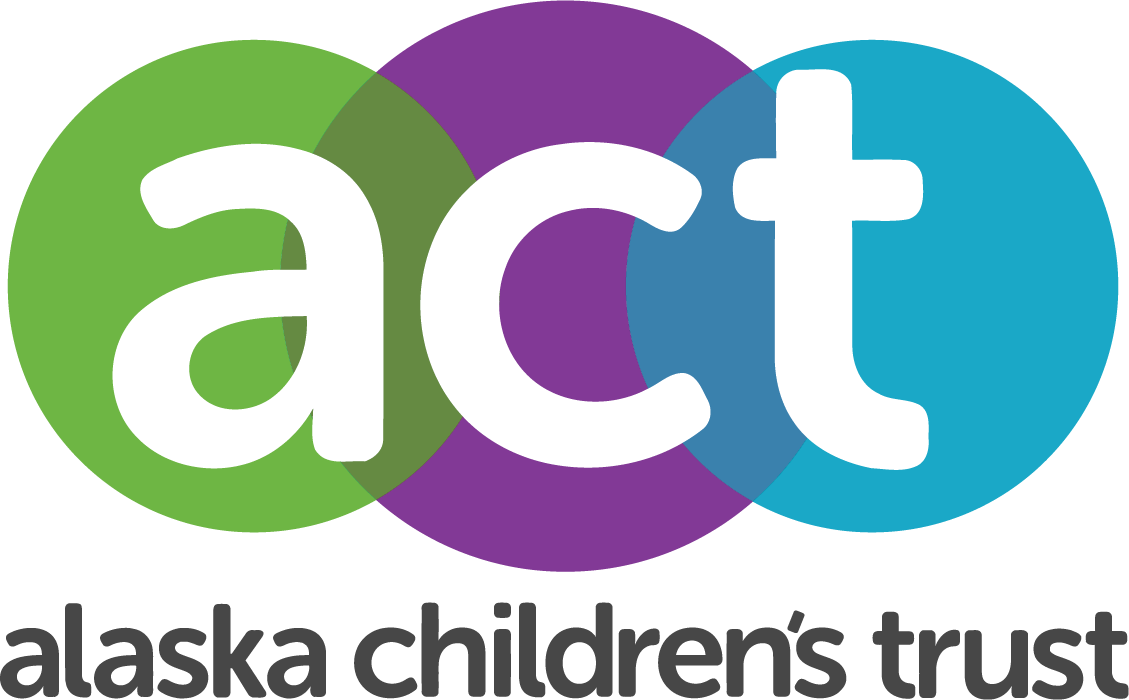
OUR WORK
Advocacy
The voices of Alaska’s children and youth need to be uplifted by passionate and committed Alaskans. Join our listserv here to learn more about advocating for Alaska’s children.
ADVOCACY
Children and youth are our state’s greatest resource, and the decisions our leaders make about them impact our collective future. At Alaska Children’s Trust, we recognize that the way policies and systems are designed and implemented can either prevent or perpetuate the factors that can lead to child abuse and neglect. Therefore, one of ACT’s key roles is to be an advocate for kids.
As an advocate, we work towards policies and services that strengthen families and communities, promote healthy child and youth development, and prevent child abuse and neglect before it happens.
We know that the prevention of child abuse and neglect cannot be achieved by any singular person or organization. As adults, it is all our responsibility to lend our voice to issues that help ensure children and youth live in safe, stable, and nurturing relationships and environments. Be a voice for Alaska’s kids by learning more about what we stand for and signing up to join our volunteer team of advocates!
ACT’s PRIORITY BILLS
WELCOME TO THE LEGISLATIVE SESSION
ACT’s Policy Framework
-

Child and Family Health
Physical and mental health is fundamental to children and youth’s overall development and well-being. This begins with reproductive and maternal health supports and continues throughout childhood. A key component of supporting child and family health is ensuring access to quality, affordable health insurance coverage for both children and families. Additionally, addressing system inequities which limit access to physical and mental health resources is critical for improving health outcomes.
-

Educational Foundations for Success
Strong early childhood and education systems create a solid foundation for lifelong success. While it is important for these systems to provide access to quality academic instruction, they should also support the social and emotional needs of children and youth. This is done through quality mental health curriculum and support within schools, as well as access to out of school programming and experiences that enrich and expand student learning. Additionally, supporting the adults within our education and early childhood systems is critical to system sustainability and improved outcomes.
-

Family Economic Well-Being
Parents in Alaska work hard to provide for their children. However, Alaska is a challenging place to live and raise a family. Both housing and food insecurity impact many Alaskan families, and the programs designed to provide support are challenging to navigate. Improving the efficiency and effectiveness of current programs while also exploring policy opportunities to improve long-term economic prosperity for all working families will help provide stability for Alaska’s young families.
-

Strengthening Communities and Families
Families and children thrive in safe, strong, supportive communities. When provided with the knowledge, supports, and opportunity, communities can come together to better serve their families and children in ways that build on community strengths and intentionally address community needs.
-

Accountable and Sustainable Systems
Systems serving our children and families must have an effective governance structure that includes authentic family involvement, receive funding that is sufficient and sustainable, and utilize data-driven accountability practices to continually improve outcomes in a manner that is equitable and child-focused. When effective governance, sustainable funding and data-driven quality improvement exist within these systems, leaders and parents are able to transform systems in ways that lead to long-term improvement in outcomes for children and youth.

2024 Agenda
Our 2024 Agenda includes both current policy and advocacy priorities, as well as potential policy priorities. An item is listed as “current” based on one or more factors activities occurring at the system-level, bills that have been introduced, movement in the advocacy space, and other activities that are creating an open policy and advocacy window.
Healthy Kids and Families
Policy goal: Reduce the rate of uninsured children and families in Alaska and increase access to physical and mental health services to ensure equitable access to services across all regions and populations.
Current Policy Efforts:
Support School-Based Medicaid
Educational Foundations for Success
Policy goal: Support the educational, social, and emotional needs of all Alaska youth, from birth to 18.
Current Policy Efforts:
Fully fund Head Start match at $12 million
Support Day Care Assistance (HB89)
Match the federal investment in Alaska's child care program
Family Economic Well-Being
Policy goal: Increase economic stability of all working Alaskan families in order to reduce stress and increase resilience.
Current Policy Efforts:
Support Pay Day Lending (HB145)
Support Paid Family Leave (HB100)
Strengthening Families and Communities
Policy goal: Increase community and family knowledge and skills around positive childhood experiences.
Accountable and Sustainable Systems
Policy goal: Transform Alaska’s child and family serving systems by creating governance structures that include parents, providing adequate and sustainable funding sources, and using data-driven decision making to improve quality.
Current policy efforts:
How to Advocate for Children, Youth, and Families
During the 2nd regular session of
the 33rd Alaska Legislature
It's critically important for legislators to hear from Alaskans about bills impacting children, youth, and families! ACT wants to empower you with the tools you need to submit public testimony and offer your lived experience and expertise to decision-makers.
Throughout the legislative session, there are multiple ways to testify on a bill. If you are new to testifying, visit or call your local Legislative Information Office (find your LIO here) so they can help you provide the best testimony possible and walk you through procedures and getting connected via phone. Another way to share your thoughts is through written testimony. To submit written testimony, identify the committee that the bill is in and then email that committee to submit. You can find the different committee email addresses here.





